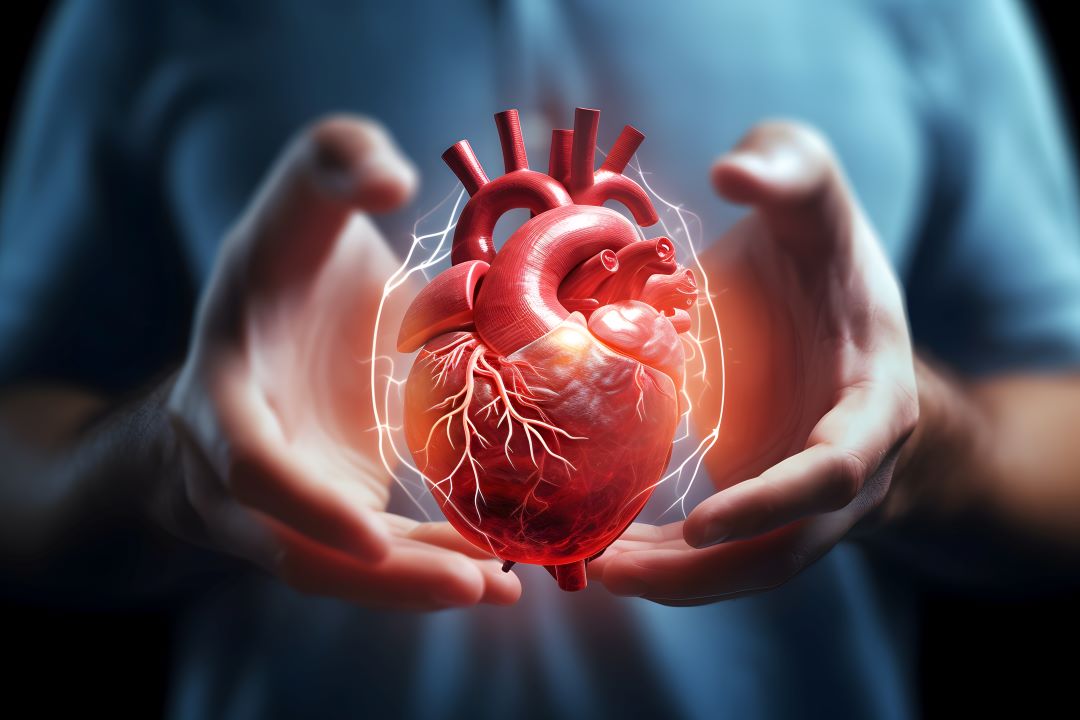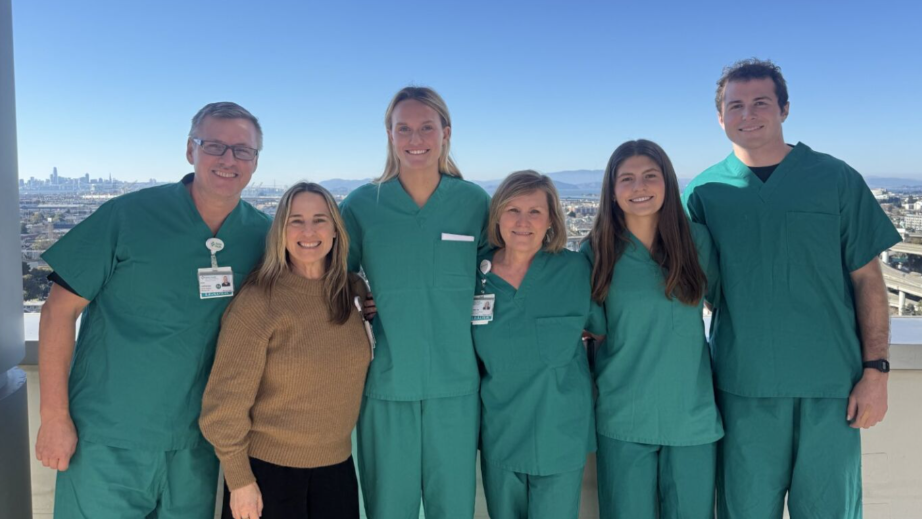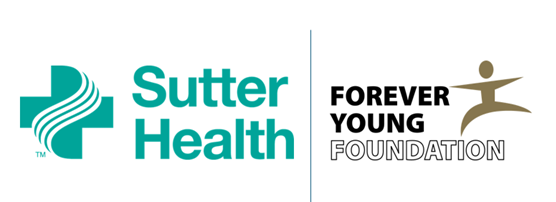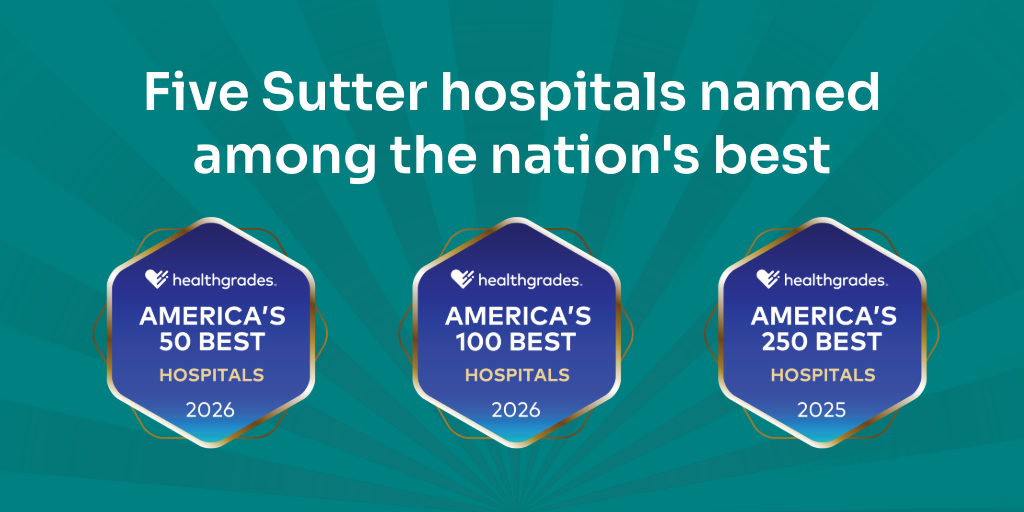Michelle R. Williams carries inside her what represents the kind of “first and only” that marks innovation and excellence. With a decades-long career consulting in California’s entertainment industry, the Santa Rosa, Calif. resident is no stranger to fame.
But never would Michelle have dreamed one of her heart valves would reach its own level of notoriety thanks to a game-changing approach to heart valve surgery at Sutter Health that pairs best-in-class robotics with surgical expertise. Michelle’s heart health was restored by specialists at Sutter’s Mills-Peninsula Medical Center, the only Sutter hospital currently offering this innovative surgery to eligible patients with diseased or damaged heart valves.

Michelle Williams’ heart health was restored by specialists at Sutter’s Mills-Peninsula Medical Center.
After her primary care doctor performed a routine procedure to check her existing heart murmur, Michelle, who is approaching age 60, was diagnosed with mitral valve regurgitation, a heart concern in which the mitral valve doesn’t close properly, causing blood to leak backward. The condition enlarges the heart and can cause fatigue, shortness of breath and a rapid heartbeat.
When Michelle learned she was a candidate for robotic cardiac surgery to repair her mitral valve—and that she would be one of the first patients at Mills-Peninsula to undergo the cutting-edge procedure—she was keen to move forward.
“During this entire experience, from diagnosis to recovery, I’ve been expertly cared for by compassionate doctors and care teams at Sutter,” says Michelle, who had the surgery Jan. 31. “Leaving the hospital I already felt more energetic, and my doctor says I’ll be back playing golf this spring.”
A Game Changer
Mitral valve repair and replacement procedures are traditionally performed as open-heart surgery, meaning surgeons open the patient’s chest and stop their heart. Robotic heart valve repair and replacement procedures are much less invasive. Michelle’s procedure involved making very small incisions in her chest to access her heart and completely repair the damaged valve, then place a robotic-assisted mitral valve annuloplasty ring.
With annuloplasty, a surgeon places a band around the ring that surrounds the heart valve. The band reinforces the ring to help the heart valve tightly close.
Cardiothoracic surgeon Dr. Bilal Shafi performed the procedure. He is currently the only cardiothoracic surgeon performing robotic mitral valve replacement and repair surgeries in the San Francisco Bay area.
Dr. Shafi has performed almost 700 robotic surgeries throughout his career, including more than 300 robotic cardiac surgeries. He notes robotic cardiac surgery offers patients several benefits over more traditional surgical methods.
“This approach is truly game-changing,” says Dr. Shafi. “The biggest benefit is the shorter recovery time and minimal scarring. Patients stay in the hospital an average of three days, and they experience less pain because we’re not cutting any muscle or breaking any ribs. They also have higher satisfaction after surgery and the same, if not better, outcomes.”
Robotic cardiac surgery provides the surgeon advantages, too.
“The visualization is much better with the robot than it is with a traditional sternotomy where we open the chest,” says Dr. Shafi. “I feel like I can do a better, more precise operation that provides a higher likelihood of repair while keeping the patient’s own tissue.”
Coordination and Collaboration
“Michelle’s care and surgery represents a multidisciplinary team effort,” Dr. Shafi says.
“Normally, a patient like her may have stayed in the hospital for five to 10 days,” says Dr. Shafi. “Because of all of our coordination and efforts before surgery and the fact that we were able to do it minimally invasively, we were able to get her in and out of the hospital quickly.”
Before Michelle’s surgery, Dr. Shafi and his team performed robotic cardiac surgery at Mills-Peninsula on a patient who had coronary artery disease but who didn’t want open-heart surgery. Dr. Shafi repaired his mitral valve robotically and then, two days later, interventional cardiologist Dr. Elliott Groves performed a complex coronary intervention in his right coronary artery.
“This case also went really well,” says Dr. Shafi. “It’s a testament to Sutter Health’s commitment to excellence and doing what’s best for the patient. Everybody from administration to the people working in the operating room have been instrumental in getting this program up and running. It has been a true collaboration we are proud to establish to bring the best and most innovative care to more patients.”
Michelle is grateful for the compassionate care she received from everyone involved with her surgery. She encourages other patients to consider robotic cardiac surgery if it is an option for them.
“I would definitely recommend it, and I am so thankful for the combination of state-of-the-art treatment and individualized care that restored my health.”
SIDEBAR:
Innovating on a History of Heart & Vascular Excellence at Sutter
Sutter’s heart and vascular specialists have also performed several “firsts” in Northern California that catalyzed a path for continued care innovations in:
• Open-heart surgery (including in pediatric patients)
• Heart transplant
• Interventional vascular therapy
• Pediatric heart catheterization
Learn more about clinical heart & vascular excellence at Sutter Health and how our care teams put patients first.





